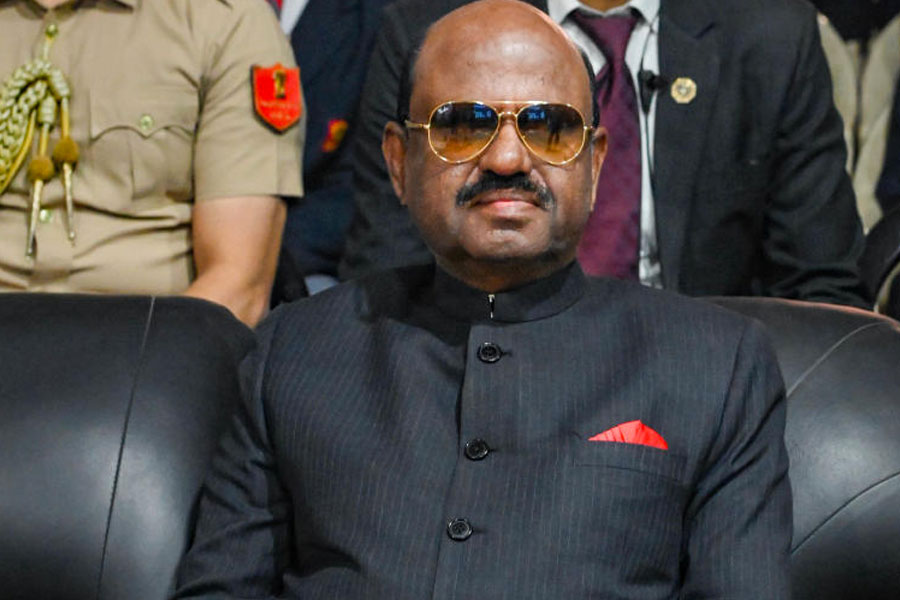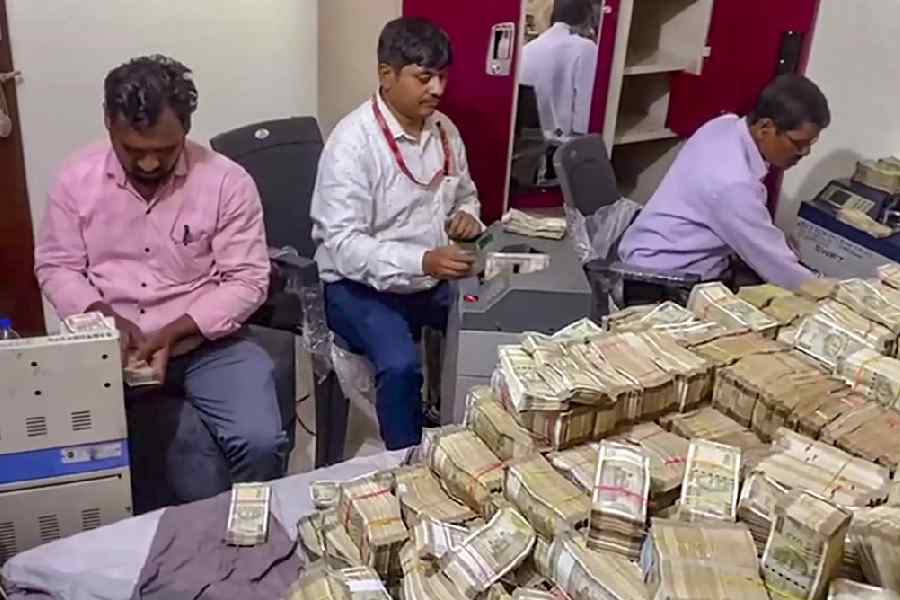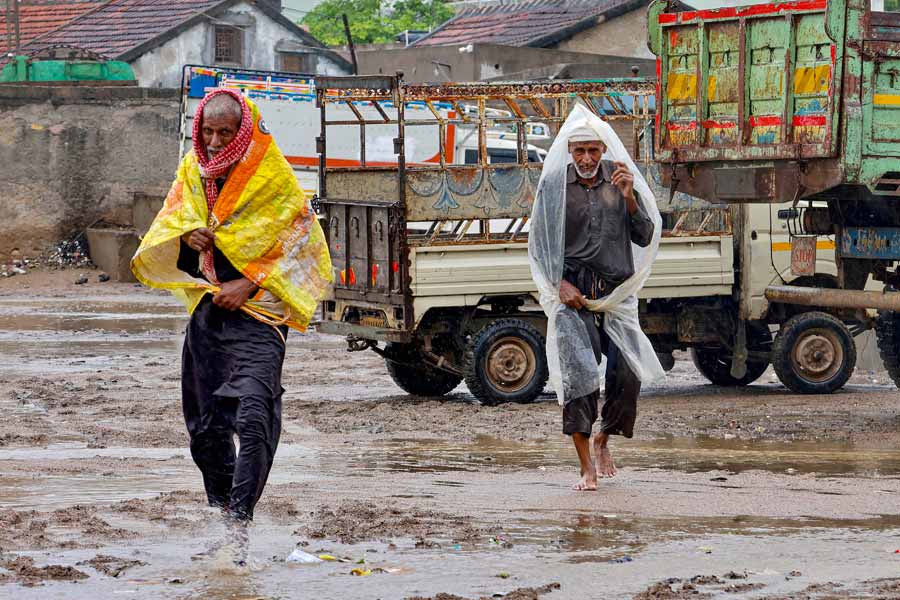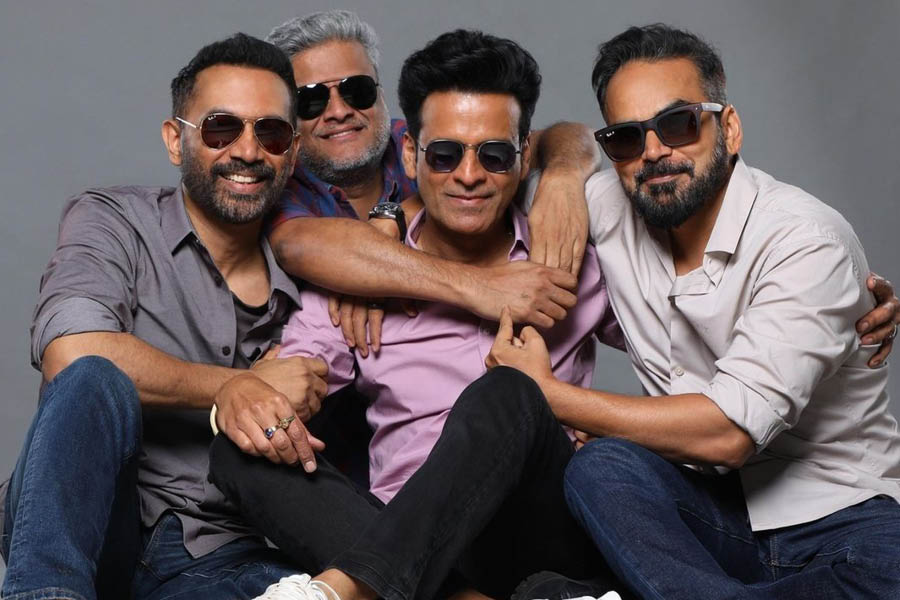The scene was as raucous as the rest of the montage that has played out for days at colleges around the nation: demonstrators swarming and calling for a permanent cease-fire in the Israel-Hamas war, a leafy quad strewn with camping equipment, police officers wearing helmets and face shields.
But in Los Angeles, the talk has been less about what was happening than about where it was happening: at the University of Southern California, a private, 144-year-old West Coast institution hardly known for intense political rebellion.
“This is not the first university you think of when you think of protests and occupying the central quad and confronting the police,” said Zev Yaroslavsky, a former longtime Los Angeles County supervisor and city councilman. “Berkeley and Harvard? Sure. But USC?”
Entwined for generations with LA’s power structure, USC has long held a special place in the nation’s second-largest city — not just as a school, but also as a community pillar in a sprawling metropolis where fixed points are hard to find.
From the start, the university was a local project, founded in 1880 in a mustard field donated by early LA real estate developers and bankers. Its donors and alumni include a who’s who of Southern California show business, law, medicine and commerce. The mayor of LA, Karen Bass, attended USC; so did Rick Caruso, the real estate mogul she defeated in 2022.
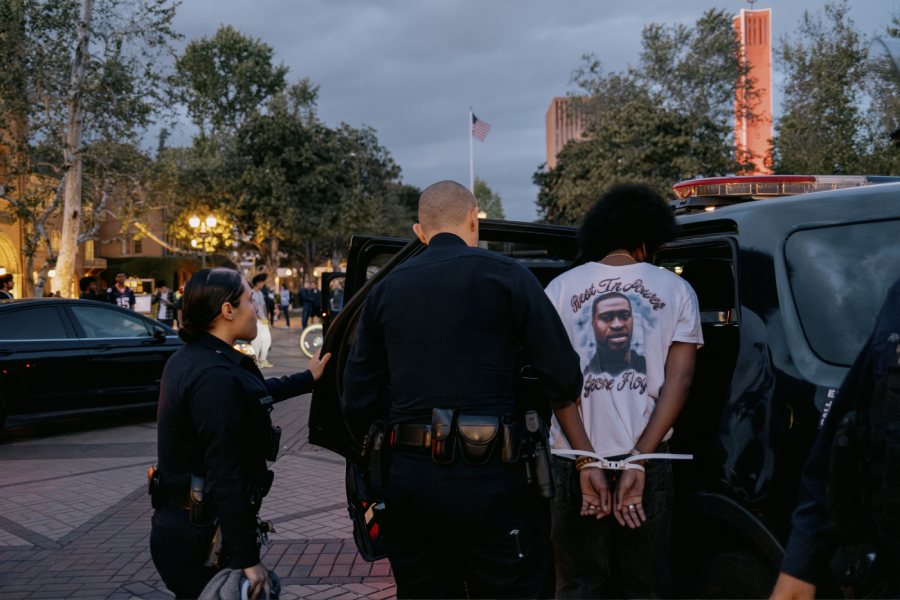
A demonstrator being taken away by police from the University of Southern California campus in Los Angeles, April 24, 2024. Mark Abramson/The New York Times
For years, USC was regarded in some circles as the “University of Second Choice” for affluent students who had been rejected by schools with more elite academic status. It was singled out by The Princeton Review back in the early 1990s for its “sports, fraternities, sororities, good-looking students, college newspaper, and dating.” Local residents routinely noted that its powerful network of Southern California alumni balanced the scales.
In a push to elevate the school’s national prestige, Steven Sample, its president from 1991 to 2010, and his successor, C.L. Nikias, raised billions of dollars in donations and research grants to transform the institution. With great wealth came some sensational misconduct.
Among the scandals: a pay-to-play college admissions conspiracy that made USC a central part of the “Varsity Blues” case, a campus gynaecologist accused of sexually abusing hundreds of patients, a bribery and fraud scheme benefiting the son of an LA politician, and a drug-abusing medical school dean.
The current president, Carol Folt, was hired five years ago to help USC rebound from the onslaught. Those past challenges, however, were of a different breed than the uproar confronting USC this month. For more than a week, the complex fight between supporters of Israel and supporters of the Palestinians has unfurled like a script borrowed from some other school.
Social movements have run through the university, including large turnouts for demonstrations in 2020 following the murder of George Floyd by police officers in Minnesota. But USC has rarely had the level of activism seen at some other large California universities, particularly in the public University of California system, and its administrators have shown less tolerance for it.
Last week, citing security concerns, university officials cancelled the valedictory address that was to be given by a Muslim biomedical engineering major. The cancellation came after pro-Israel groups criticised a pro-Palestinian link on the student’s social media bio. Hours later, the university released all of the planned speakers and featured guests who were scheduled to appear with her, including Jon M. Chu, the director of “Crazy Rich Asians,” and Billie Jean King, the celebrated athlete.
On Thursday, university officials announced that USC’s main stage commencement event, which was expected to draw 65,000 students and family members, would be cancelled completely because of new safety measures. Graduating students will still attend smaller ceremonies held by their individual schools within the university.
Folt notably refrained from commenting publicly on the cancellation of the valedictory speech. The university provost, Andrew Guzman, said in a statement that the valedictorian had “no free-speech entitlement to speak at a commencement.” In LA, civic leaders struggled to frame the decision in the usual local context.
Speaking on condition of anonymity to avoid inflaming the conflict or drawing protesters to their homes, several business and academic leaders praised USC for cancelling the speech, saying the move deprived activists of a free stage that the leaders felt could have led to an ugly and dangerous political confrontation.
Some influential academic leaders sympathised with Folt, saying the national mood had placed her in a “damned if you do, damned if you don’t” situation, especially given the criticism other college presidents have faced for not confronting pro-Palestinian protesters.
Others asked how it was that USC was able to secure its commencement last year when one of former President Barack Obama’s daughters graduated, yet was incapable this year of handling one speech by an undergraduate.
Many people inside and outside LA questioned the university’s treatment of the valedictorian, Asna Tabassum, a daughter of South Asian immigrants and first-generation college student who had been selected by faculty from among more than 200 students who met the academic qualification. There was no indication that Tabassum was planning to use her speech to make a political statement, they said.
“The message this sends to graduating seniors is that when a threat to free speech arrives, it’s time to cave,” the Los Angeles Times wrote in a blistering editorial about the decision to cancel her speech. In a statement, Tabassum accused the university of giving in to a heckler’s veto.
Pro-Palestinian student groups called on the university to reconsider, and hundreds of students marched through campus over the weekend in a silent protest. A columnist for the Jewish news site The Forward wrote that “once USC decided to offer Tabassum the top student speaking spot, the university needed to stand by its decision” but instead had “compounded the shortsightedness and stoked even more anger: It blamed Jews.”
Pro-Palestinian students tried to occupy the commencement site Wednesday by erecting a tent camp at Alumni Park, similar to the encampments set up at Columbia University in New York and the University of California, Berkeley. Within hours, the USC campus police removed signs and began seizing tents, and a clash between protesters and officers unfolded.
Hundreds of demonstrators stayed on the campus quad throughout the day. “Disclose! Divest!” marchers shouted, calling on the university to cease investing in suppliers of Israeli weapons.
But unlike Berkeley, which has had a protest encampment since Monday, USC would tolerate very little more. Administrators sought help from the Los Angeles Police Department to remove protesters from the quad before nightfall. By late Wednesday, 93 people were arrested on the USC campus. In a statement, Guzman, the provost, said that “many” of the protesters “do not appear to be affiliated with USC.”
'The response was insane'
The intensity of the crowds — and the university’s forceful reaction — have disoriented faculty, students and community members.
“The response to it was insane,” Cameron Davidson, a 21-year-old junior from Tucson, Arizona, said Thursday, a day after he participated in the protest. “You would have thought that there was a shooting on campus. They completely locked it down. You know, it wasn’t a proportional response at all.”
Melina Abdullah, a racial justice activist and professor of Pan-African studies at California State University, Los Angeles, said she was struck by the savvy of the current students.
“USC used to stand for University of Spoiled Children, University of Special Connections,” said Abdullah, who earned a doctorate in 2002 from USC and later co-founded the LA chapter of Black Lives Matter, as she spoke over the din of police helicopters and chanting demonstrators Wednesday.
USC now more diverse than before
Like the city around it, USC has grown far more diverse over the years, she noted. The student body is now nearly 20% Asian, nearly 16% Latino, more than 6% Black and more than 27% international. First-generation college students made up more than one-quarter of the freshman class last year.
William Tierney, a professor emeritus of higher education who has worked on the campus since 1994 and has written about the national administrative response to the campus protests, said in an interview that the administration at USC seemed to have both underestimated and overestimated its students. Even with the amplification of social media, he said, the student response to the canceled speech initially seemed mild: “At a lot of other campuses, the place would have exploded.”
He wondered what might have happened if Folt, the university president, had simply greeted the protesters with doughnuts Wednesday morning instead of calling in the police.
“I’m serious about that,” he said. “She could have said, ‘I know you’re upset about this, and I know we have different opinions, but I want us to continue talking.’”
'Dangerous climate for jews on campus'
Some local organisations, however, supported the crackdown. In a statement, the Jewish Federation of Los Angeles said that “while we believe in peaceful civic discourse, these protests have escalated to the point of creating a dangerous climate for Jews on campus.” The group demanded that USC and other LA universities “immediately restore a place that is safe for all Jews.”
What would come next was not immediately clear, as the campus protests continued to spread across the country. (“Tulane? Vanderbilt? Who knew?” Yaroslavsky marvelled.)
On Thursday, university officials said the gates would “remain closed to anyone without proper USC identification or verifiable business purpose, at least through the weekend.” Folt was unavailable for comment.
On the quad where officers and protesters clashed a day earlier, a white picket fence stood Thursday, surrounding a tidy courtyard with manicured hedges and a fountain.
Jody Armour, a USC law professor, said that he was “shocked and astonished” at the impact the protests had had on the institution where he had worked for 25 years.
“This school’s brand for the last several years has been, we are student-centred,” Armour said. “We want to promote freethinking citizens who are active participants in the political process. And they were doing this morning what we teach them to do, what we hope that they will do. And our response was to crack down on them with violence.”
The New York Times News Service


